The Next Page
Are you curious about the power of international cooperation? And how it affects our future? Tune in to the #NextPagePod, the podcast of the UN Library & Archives Geneva, designed to advance the conversation on multilateralism.
Are you curious about the power of international cooperation? And how it affects our future? Tune in to the #NextPagePod, the podcast of the UN Library & Archives Geneva, designed to advance the conversation on multilateralism.
Episodes
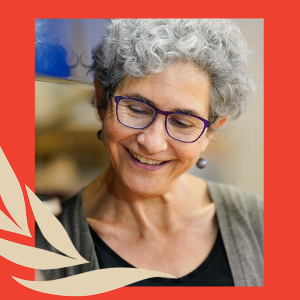
Friday Aug 27, 2021
Friday Aug 27, 2021
Pour l’épisode 59 de The Next Page, nous sommes heureux d’accueillir Anne-Claire Schumacher pour parler de Gustave Revilliod, du Musée Ariana et de leur lien avec les Nations Unies.
Conservatrice en chef au Musée Ariana, le musée suisse de la céramique et du verre, Anne-Claire Schumacher nous propose un regard nouveau sur l’héritage de Gustave Revilliod et son influence sur la Genève internationale. Elle nous dévoile également le contenu des mystérieuses capsules temporelles cachées par Gustave Revilliod et dont deux sont retrouvées en 1933 et 1936, respectivement, par des ouvriers de la Société des Nations. Enfin, elle nous rappelle l’importance de la culture et de l’Histoire pour améliorer le présent et favoriser une plus grande ouverture au monde.
Ressources :
Musée Ariana : http://institutions.ville-geneve.ch/fr/ariana/
Gustave Revilliod : https://bit.ly/3xYnnhx
Parc Ariana : https://www.ungeneva.org/fr/about/palais-des-nations/ariana-park
Contenu :
Intervenant: Anne-Claire Schumacher
Animatrice: Kelly Le Normand
Réalisation et montage: Kelly Le Normand, Natalie Alexander & Katrine Lyngso
Enregistré et produit à la Bibliothèque des Nations Unies à Genève
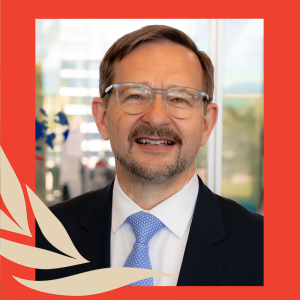
Friday Aug 20, 2021
Cooperative Security amid multilateral doubt with Thomas Greminger
Friday Aug 20, 2021
Friday Aug 20, 2021
This episode of the #NextPagePod addresses the paradoxical reality that while we face a growing number of systemic security challenges that can only be solved collaboratively, such as climate change and the COVID-19 pandemic, there is also an increasing amount of unilateral policies and political will globally. Our Director Francesco Pisano welcomes Thomas Greminger to the studio to talk about what cooperative security means, and where it can be beneficially applied. As a security expert, the current Director of the Geneva Centre for Security Policy (GCSP) and former Secretary-General of the Organization for Security and Co-operation in Europe (OSCE), he argues that collaboration is the best-proven way to fight our current security challenges and prepare against future security risks.
Resources:
More about Geneva Centre for Security Policy: https://www.gcsp.ch/
More about Ambassador Thomas Greminger:
https://www.gcsp.ch/our-experts/ambassador-thomas-greminger
Follow Greminger on Twitter: https://twitter.com/thgreminger
Transcript: Here
Content:
Speakers: Ambassador Thomas Greminger & Francesco Pisano
Host: Natalie Alexander
Editor & Producer: Katrine Lyngso
Social media designs: Katrine Lyngso
Recorded & produced at the United Nations Library & Archives Geneva
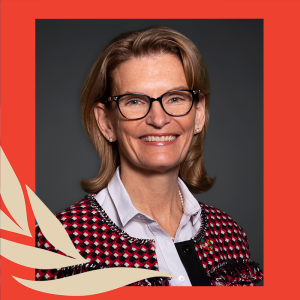
Friday Aug 06, 2021
Women in Tech: why it matters with Doreen Bogdan-Martin
Friday Aug 06, 2021
Friday Aug 06, 2021
This episode of the #NextPagePod brings you a timely conversation between the Director of the ITU Telecommunication Development Bureau, Doreen Bogdan-Martin and our Director Francesco Pisano about women in tech.
As the first woman in ITU’s history to hold a top elected management position, Doreen Bogdan-Martin speaks about her experience as a female leader in the male-dominated tech sector, why the industry can be discouraging for women, why the industry perpetuates gender bias, and tech ethics.
Doreen Bogdan-Martin asserts that putting more emphasis on people-centered technology is key to achieving the 17 Sustainable Development Goals and helping people live better lives. She also enlightens us on how the Bureau makes substantial efforts to encourage young people’s participation in the sector, not only as beneficiaries but as creators and changemakers.
Resources:
Follow Doreen Bogdan-Martin on Twitter at @DoreenBogdan
Or the BDT Director's Twitter here @ITUBDTDirector
Find Doreen Bogdan-Martin on Linkedin: https://www.linkedin.com/in/doreentbogdan/
Find more info about Bogdan-Martin here: https://www.itu.int/en/ITU-D/bdt-director/Pages/Biography.aspx
More about ITU: www.ITU.int
The EQUALS Global Partnership for Gender Equality in the Digital Age: https://www.equalsintech.org/
The International Gender Champions (IGC): https://genderchampions.com/
Women@theTable : https://www.womenatthetable.net/
School connectivity effort (GIGA): https://gigaconnect.org/
“Building Smart Villages: A Blueprint”: https://www.itu.int/en/myitu/News/2020/06/12/13/32/Niger-launches-Smart-Village-project
Generation Connect Initiative: https://www.itu.int/generationconnect
Transcript: here
Content:
Speakers: Doreen Bogdan-Martin & Francesco Pisano
Host: Katrine Lyngso
Editor & Producer: Katrine Lyngso
Social media designs: Katrine Lyngso
Recorded & produced at the United Nations Library & Archives Geneva
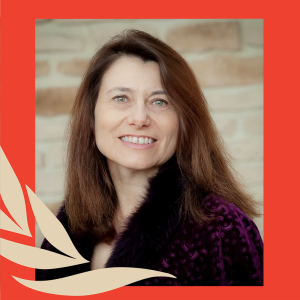
Friday Jul 23, 2021
Friday Jul 23, 2021
Pour l’épisode 56, nous sommes très heureux d’accueillir Marie-Laure Salles, qui nous parle des interactions complexes entre le monde dès l’économie et la société et de la nécessité de former les jeunes autrement, si nous voulons « changer la culture du monde » et faire face aux enjeux du futur.
Marie-Laure Salles est une sociologue et universitaire renommée qui est, depuis septembre 2020, la directrice de l’Institut des Hautes Études et du Développement (l’IHEID) à Genève.
Dans cet épisode, Marie-Laure Salles partage sa vision sur la manière dont les étudiants doivent être préparé au monde de demain d’une manière radicalement différente de celle qui prévaut aujourd’hui.
L’épisode permet également de comprendre comment un plan d’action commun entre l’Organisation des Nations Unis à Genève et l’IHEID, qui partagent un lien historique, va permettre de concrétiser en partie de cette vision. Marie-Laure Salles insiste en particulier sur la nécessité de mettre en place des mécanismes qui permettront aux jeunes générations d’affirmer leurs idées auprès de l’ONU et de se faire entendre au sein de l’Organisation.
Ressources
Plus d'infos sur Marie-Laure Salles: https://g.co/kgs/5KWXtG
Retrouvez Marie-Laure Salles sur Linkedin: https://www.linkedin.com/in/marielauredjelic/
Retrouvez Marie-Laure Salles sur Twitter : https://twitter.com/mlevasalles
Consultez les recherches de Marie-Laure Salles : https://scholar.google.com/citations?user=g1JxoogAAAAJ
Transcription ici
Contenu :
Intervenant: Marie-Laure Salles
Animatrice: Blandine Blukacz-Louisfert
Réalisation et montage: Blandine Blukacz-Louisfert, Natalie Alexander & Katrine Lyngso
Francesco Pisano pour l’introduction
Enregistré et produit à la Bibliothèque des Nations Unies à Genève
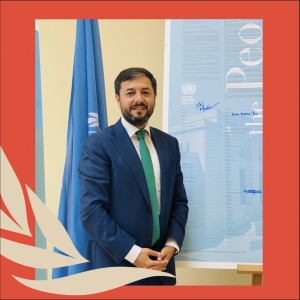
Friday Jul 09, 2021
Friday Jul 09, 2021
What is neutrality and why it is beneficial for some states? How do geopolitical tensions influence Afghanistan's potential for permanent neutrality?
In episode 55 of the #NextPagePod, our director Francesco Pisano spoke to Dr Nasir A. Andisha, Ambassador and Permanent Representative of Afghanistan to the UN in Geneva, about Afghanistan's periods of neutrality which have coincided with periods of stability and peace.
Dr Andisha is also the author of Neutrality and Vulnerable States, which analyses the concept and practice of neutrality from an academic and historical perspective. In this conversation, the ambassador also gave us his perspective of Afghanistan's future in light of the US's withdrawal of all its troops and how this can affect its prospects of regional neutrality.
Resources:
Follow Dr. Andisha on Twitter https://twitter.com/AndishaNasir
Neutrality and Vulnerable States: https://bit.ly/36n6NfW
More about Dr. Andisha: https://www.geneva.mfa.af/en/the-embassy/ambassador-s-biography.html
Transcript: here
Content:
Speakers: Dr. Nasir A. Andisha & Francesco Pisano
Host: Katrine Lyngso
Editor & Producer: Katrine Lyngso
Social media designs: Katrine Lyngso
Recorded & produced at the United Nations Library & Archives Geneva
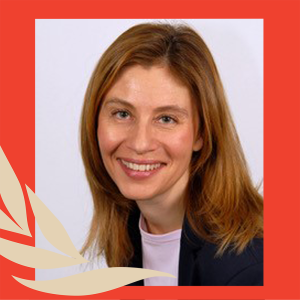
Friday Jun 25, 2021
Friday Jun 25, 2021
Pour cet épisode, nous sommes heureux d’accueillir Olga Hidalgo-Weber pour parler de l’ouvrage publié sous sa direction et celle de Bernard Lescaze intitulé «100 ans de multilatéralisme à Genève. De la SdN à l’ONU », paru en 2020 aux éditions Suzanne Hurter.
Olga Hidalgo-Weber, en tant qu’historienne et chargée de cours à l’Université de Genève, nous communique sa passion pour l’histoire et partage avec nous son érudition et sa vision sur le multilatéralisme. Elle nous explique, en particulier, quelles sont les nouvelles approches développées dans le domaine de la recherche historique sur les organisations internationales. Elle nous illustre comment cet ouvrage collectif porte un regard nouveau sur la Société des Nations et le multilatéralisme en général. Elle s’exprime également sur la résilience du système multilatéral et sur certains acteurs emblématiques du multilatéralisme. Enfin, elle nous offre un court exposé sur l'institutionnalisation du multilatéralisme en prenant l’exemple du secrétariat international.
Cet épisode permet de mieux comprendre comment l'histoire du multilatéralisme peut se confondre avec l'histoire des organisations internationales.
Ressources
Plus d'infos sur Hidalgo-Weber: https://www.unige.ch/lettres/istge/corps-enseignant/hco/hidalgo-weber-olga/
Retrouvez Olga sur Linkedin: https://www.linkedin.com/in/olga-hidalgo-weber/?originalSubdomain=ch
La Grande-Bretagne et l’Organisation internationale du travail: https://bit.ly/3vRk7mN
Livre « 100 ans de multilatéralisme à Genève de la SdN à l’ONU », éditions Hurter : https://www.editions-hurter.ch/produit/100-ans-de-multilateralisme-a-geneve-de-la-sdn-a-lonu/
Livre « 100 ans de multilatéralisme à Genève de la SdN à l’ONU », UN Global Search: https://bit.ly/2SizDut
Evénement « Genève, ville internationale. De la Société des Nations à l'ONU, 100 ans de multilatéralisme (1920-2020) » : https://mediaserver.unige.ch/play/142340
Contenu
Intervenant: Olga Hidalgo-Weber
Animatrice: Hermine Diebolt
Réalisation et montage: Hermine Diebolt, Natalie Alexander & Katrine Lyngso
Enregistré et produit à la Bibliothèque des Nations Unies à Genève
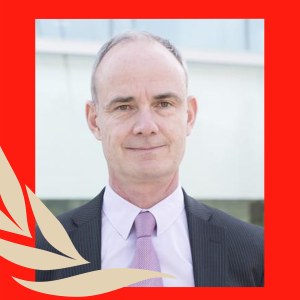
Friday Jun 11, 2021
Harnessing economics for humanitarian action with Gilles Carbonnier
Friday Jun 11, 2021
Friday Jun 11, 2021
In this episode, Gilles Carbonnier joined the #NextPagePod for a conversation about applying economic tools and methods to improve humanitarian responses to armed conflicts and disasters.
Carbonnier is a specialist in the domain of humanitarian response with expertise on several levels. Carbonnier is a Professor of Development Economics at the Graduate Institute whose research focuses mainly on the economics of humanitarian crises and the Vice-President of the International Committee of the Red Cross (ICRC). Carbonnier also has vast experience as a practitioner in the field of humanitarian missions, in countries including Iraq and Egypt. In this episode, the economist explains how these levels of humanitarian work corporate and especially how economics can contribute to a better understanding of the side effects and contributions of humanitarians.
Carbonnier also explained economics can bring valuable contributions to solving armed conflicts in interdisciplinary dialogue with phycologists, anthropologists, historians, and political scientists.
Resources:
Follow Carbonnier on Twitter: https://twitter.com/gcarbonniericrc
Read more about Carbonnier: https://www.icrc.org/en/person/gilles-carbonnier
Humanitarian Economics: War, Disaster, and the Global Aid Market: https://bit.ly/3xbYsqG
Rebel Economies: Warlords, Insurgents, Humanitarians: https://bit.ly/3vc75Qw
Reason, emotion, compassion: can altruism survive professionalisation in the humanitarian sector: https://pubmed.ncbi.nlm.nih.gov/25439560/
The Theory of Moral Sentiments by Adam Smith: https://www.adamsmith.org/the-theory-of-moral-sentiments
Households in Conflict Network: https://hicn.org/
Cash Learning Partnership: https://www.calpnetwork.org/
Centre for Economic Policy Research: https://cepr.org/
Transcript: Here
Content:
Speakers: Gilles Carbonnier & Francesco Pisano
Host: Katrine Lyngso
Editor & Producer: Katrine Lyngso
Social media designs: Katrine Lyngso
Recorded & produced at the United Nations Library & Archives Geneva
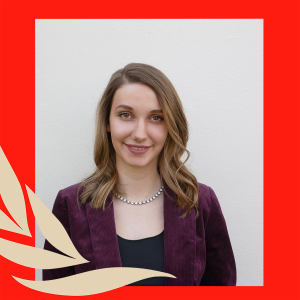
Friday May 28, 2021
Diversity in youth voice with Alicia Joho #KnowledgeRising
Friday May 28, 2021
Friday May 28, 2021
Why does multilateralism matter to young people? And how do we create inclusive and diverse participation of young people in multilateral efforts? In this episode, Natalie Alexander poses these questions and many more to Alicia Joho as a part of our #KnowledgeRising series.Alicia Joho is a student studying a Dual Master's degree in International Relations, Human Rights and Humanitarian Action at the London School of Economics and Sciences Po, a former Swiss youth delegate to the United Nations, Communications Director at STEAR and an intern at the UN's gender unit of the Executive Office of the Secretary-General.
Tune in to this conversation about diversity in youth voice, accounts of how young people are already shaping the future of multilateralism and getting beyond "token" representation.
Resources:
Follow Alicia Joho on Twitter: https://twitter.com/aliciajoho
Find Alicia Joho on Linkdin: https://www.linkedin.com/in/aliciajoho/?originalSubdomain=ch
Youth Delegate Program: www.youthrep.ch
Find the Youth Delegate Program Guide: here
STEAR: https://www.stearthinktank.com/
Transcript: Here
Content:
Speakers: Natalie Alexander & Alicia Joho
Host: Natalie Alexander
Editor & Producer: Katrine Lyngso
Social media designs: Katrine Lyngso
Recorded & produced at the United Nations Library & Archives Geneva
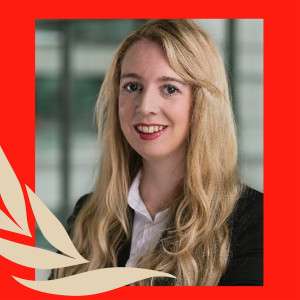
Friday May 14, 2021
Friday May 14, 2021
The historian Professor Alanna O’Malley from Leiden University, joined us at The Next Page to tell us more about her work as Chair of United Nations Studies in Peace and Justice and to explore some of the themes in the cross-disciplinary volume she co-edited on The Institution of International Order, tracing the period from the 1920s to the 1970s and spanning the transition from the League of Nations to the United Nations. She discusses the history of internationalism and the dynamic, complex forces at play around these two organisations as global platforms. Professor O’Malley also talks of her current research on the invisible history of the UN and the Global South.
Resources:
Professor O'Malley's bio: https://bit.ly/2QdzN58 Tracing the Invisible History of the Global South and the United Nations: https://bit.ly/2RR1X6m
The Institution of International Order: From the League of Nations to the United Nations: https://bit.ly/3uF8MGR
TedTalk: "The United Nations: From Blue Helmets to Blue Skies" https://www.youtube.com/watch?v=Ng2TltnSDmU
The Guardians: The League of Nations and the Crisis of Empire by Susan Pedersen: https://bit.ly/3hppl5F
The Parliament of Man: The Past, Present, and Future of the United Nations by Paul Kennedy: https://bit.ly/2QelKMK
The End of Empire and the Ideological Origins of the United Nations by Mark M. Mazower: https://bit.ly/3borbjC
Transcript here
Content:
Speakers: Amy Smith & Professor Alanna O'Malley
Host: Amy Smith
Editor & Producer: Katrine Lyngso
Social media designs: Katrine Lyngso
Recorded & produced at the United Nations Library & Archives Geneva
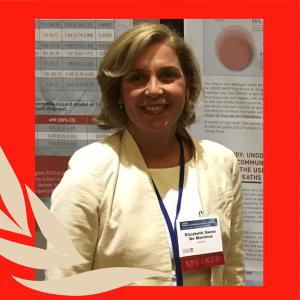
Friday Apr 30, 2021
Friday Apr 30, 2021
Dr. Elizabeth Sáenz joined The Next Page for a conversation on the interconnection between the Sustainable Development Goals. As a pediatrician and liaison officer for the United Nations Organization on Drugs and Crime (UNODC) at the WHO, Dr. Sáenz specializes in drug dependence treatment, with a special focus on prevention, treatment, and rehabilitation.
Speaking on this issue from the perspective of the SDGs, Dr. Sáenz explores how quality education, gender equality and even decent work and economic growth are all intertwined within this context. She highlights the need for greater compassion and understanding, the role that everyone can play towards raising awareness, and the vastly multi-faceted and multi-disciplinary nature of the ongoing efforts in prevention and treatment. Additionally, she speaks on the unique but collaborative roles of the UNODC and the WHO in advancing the conversation on this topic, through the lens of justice and health.
A fascinating conversation that shines a light on the interconnectedness of the Sustainable Development Goals, and the role that everyone can play, we hope this episode brings you new insights and perspectives.
Resources
Twitter – Dr. Sáenz: https://twitter.com/drelisaenz?lang=en
UNODC and the SDGs: https://www.unodc.org/unodc/about-unodc/sustainable-development-goals/sdgs-index.html
UNODC Drug Prevention and Treatment: https://www.unodc.org/unodc/en/drug-prevention-and-treatment/index.html
UNODC 2021-2025 Strategy: https://www.unodc.org/documents/commissions/CND/CND_Sessions/CND_63Reconvened/ECN72020_CRP22_ECN152020_CRP3_V2007057.pdf
UNODC Strategic Vision for Africa 2030: https://www.unodc.org/unodc/en/strategy/africa-vision.html
Transcript here
Content
Speakers: Karen Lee & Elizabeth Sáenz
Host/Editor: Karen Lee
Producers: Karen Lee & Natalie Alexander
Social media designs: Katrine Lyngso
Recorded & produced at the United Nations Library & Archives Geneva

The #NextPagePod
Are you curious about the power of international cooperation? And how it affects our future? Then tune in to the #NextPagePod, the podcast designed to advance the conversation on multilateralism!
Each episode delves into global issues through a multilateral lens, exploring how collaboration across disciplines can facilitate reaching common goals.
Produced at the United Nations Library & Archives Geneva
Editorial Team:
Editor & Coordinator - Amy Smith
Hosts: Francesco Pisano, Natalie Alexander, Amy Smith, Blandine Blukacz-Louisfert, Hermine Diebolt.
Podcast logo and designs - Natalie Alexander, Amy Smith.





